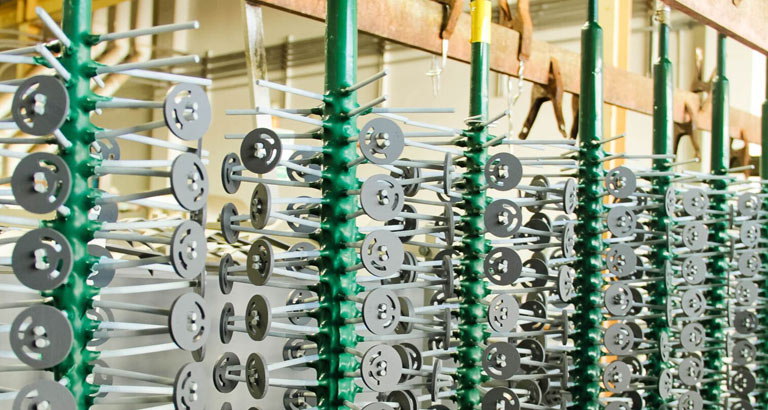We offer a variety of anodized finishes, from small, complex assemblies to 11-foot structures. Our electrolytic process maximizes protection against corrosion and wear and improves paint primer and glue adhesion for optimum life and cosmetic results.
Our Anodize Department is capable of processing small parts and fasteners as well as large structural components and parts up to 11 feet in length. The processes we offer consist of chem film, Type I chromic acid anodize, Type II sulfuric acid anodize and Type III hard anodize. Anodized parts can also be colored using a variety of prepared and ready organic dyes or left natural. This Department is located in a 12,000 sq foot stand alone building incorporating forty one (41) 12′ tanks with an overhead crane line and the Department’s own masking and racking areas. This Department provides the highest quality and efficiency of anodizing services available on the market.

Chromic acid anodize, or Type 1, is the oldest-known anodizing process and commonly used for corrosion protection under extreme service conditions or as a base (pretreatment) for paint systems. Voltage is increased throughout the process, creating an opaque film that is thinner, softer and more ductile than other methods of
+View details
Sulfuric acid anodize, or Type 2, is the most popular anodizing solution, particularly for aluminum. It offers a broad range of finish thicknesses that are generally categorized as “moderate.” The sulfuric acid coating changes the properties of the substrate, increasing the metal’s wear and corrosion resistance, improving its ability to
+View details
Hardcoat anodize, often called Type III Hard Anodize, is an electrochemical process used for aluminum components subject to extreme wear or corrosive environments. Thicker and denser than Type II, hard anodize is often specified for applications requiring superior abrasion resistance, a thicker coating, or enhanced electrical insulation. Since the thickness
+View details
Chemical conversion coatings are usually used a pretreatment on parts to prepare the surface for excellent paint adhesion. Typically applied by immersion, chromate conversion coatings also produce hydrophobic and abrasion resistance films. Our large crane line has ample capacity for your chem film needs on all sizes and volumes of
+View details